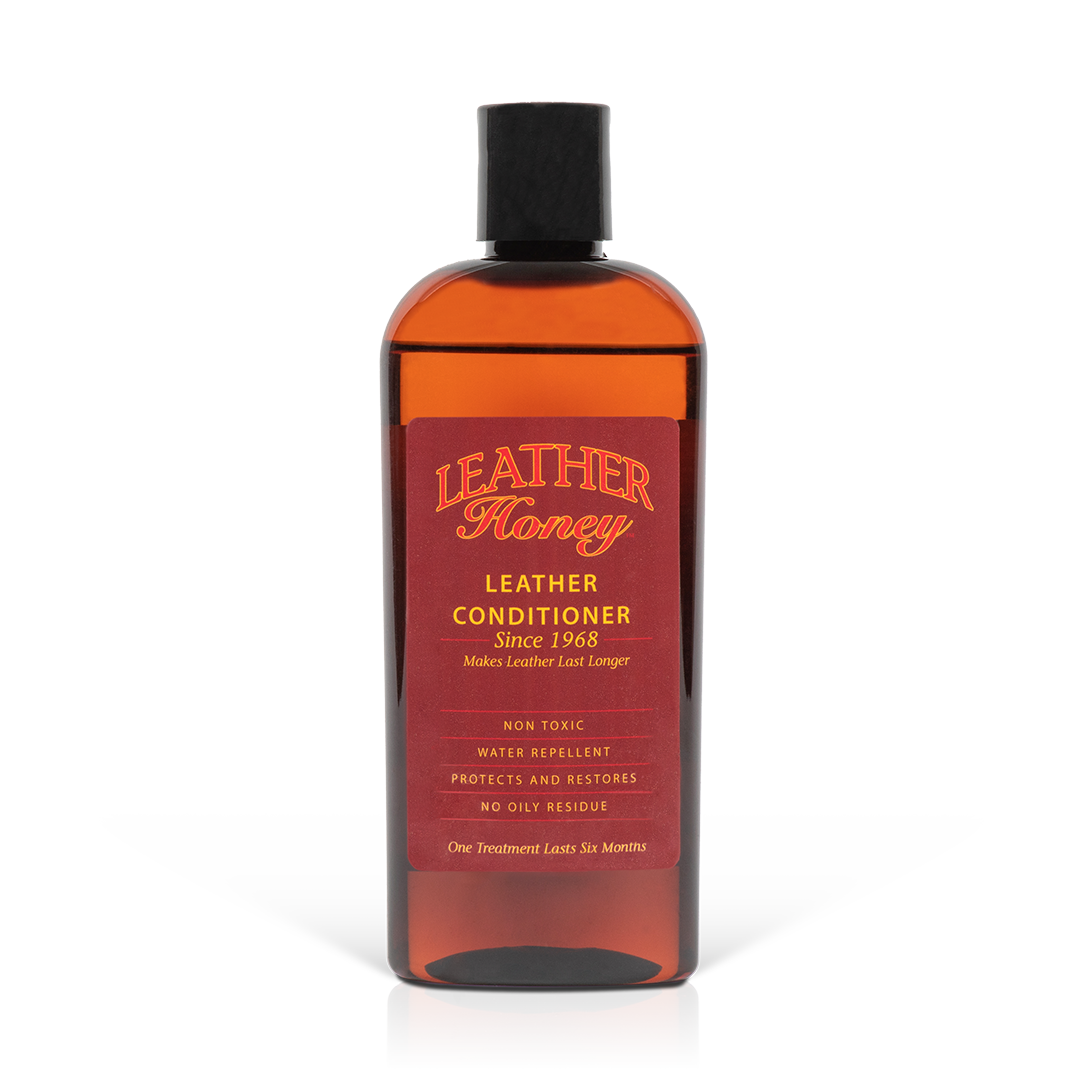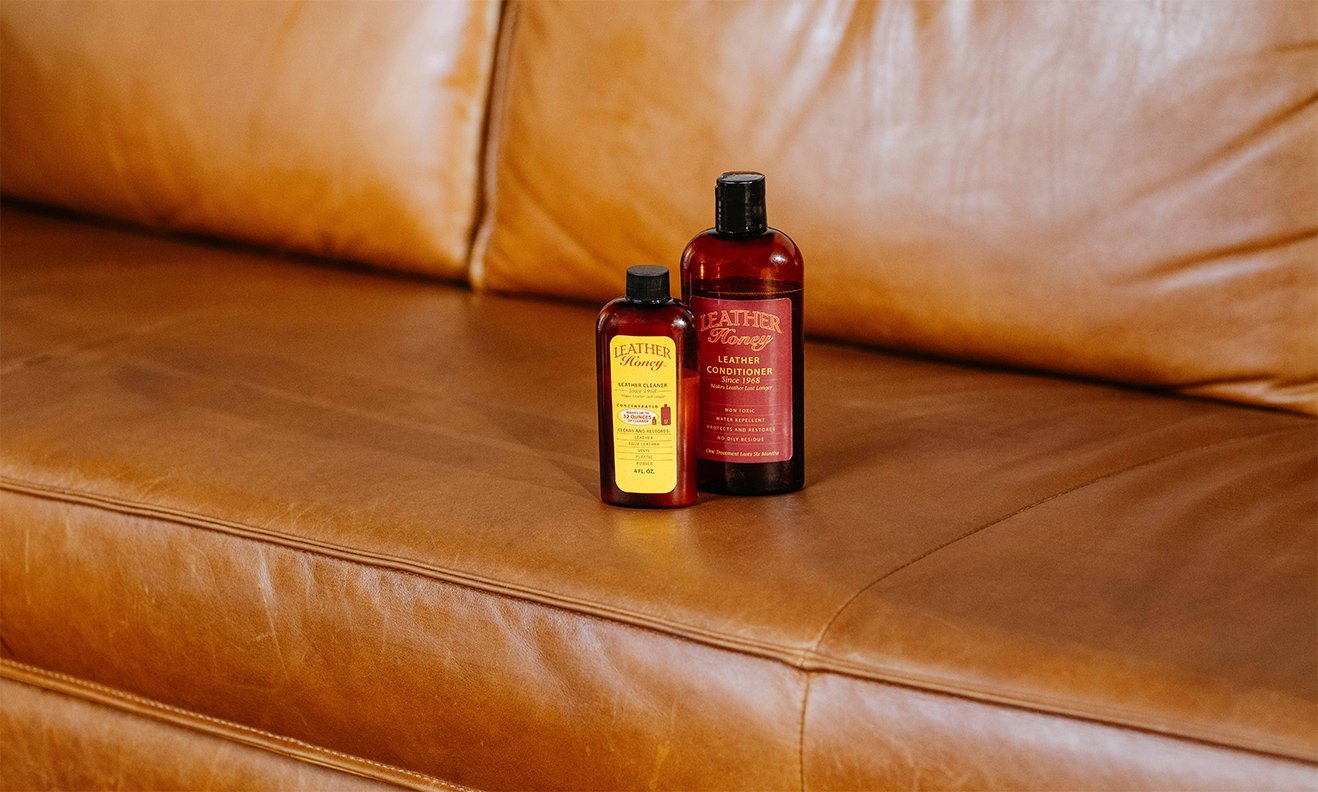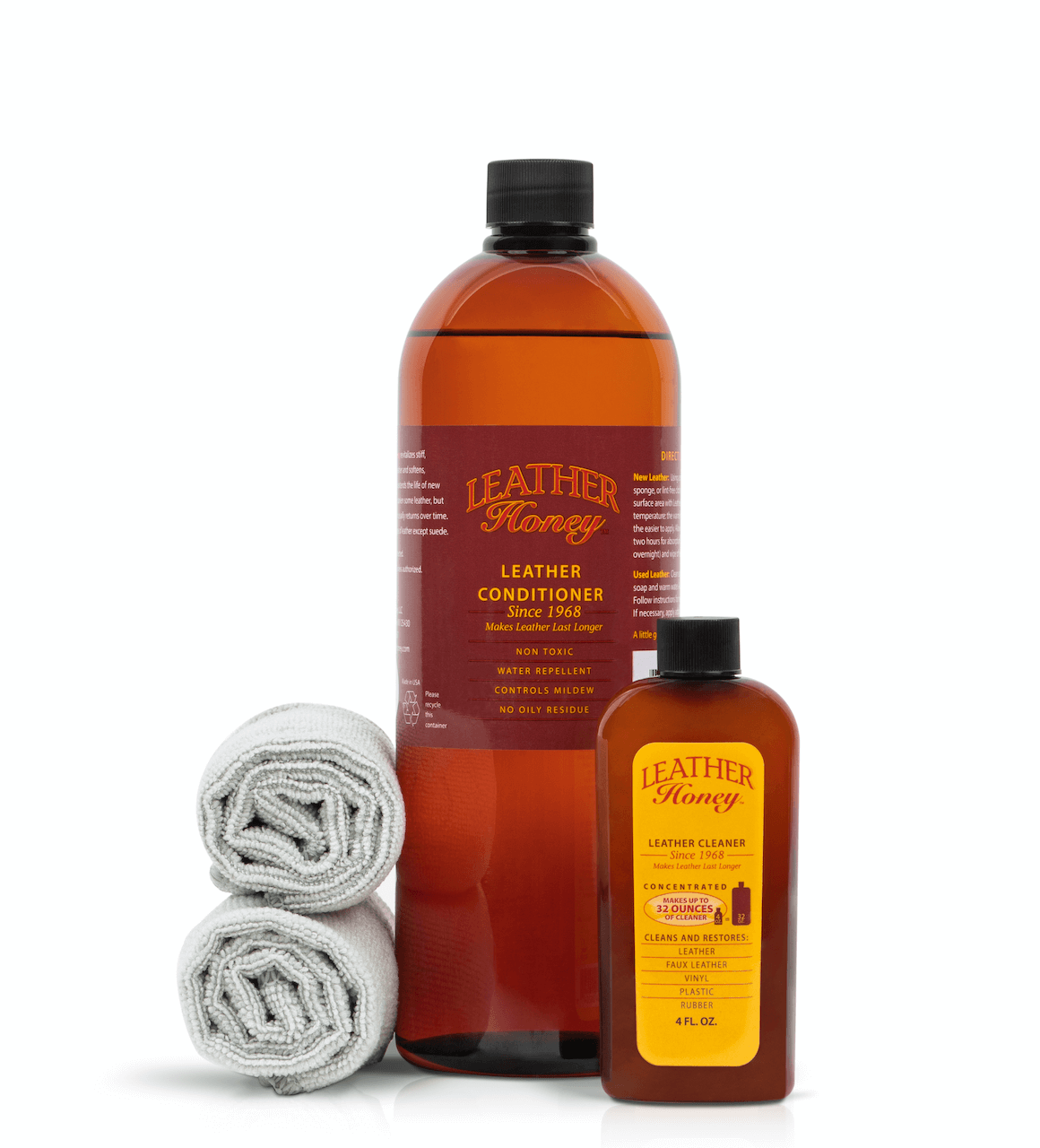There are several claims for leather cleaning and conditioning solutions that are simply untrue -- yet they continue to spread either by word of mouth or through internet searches.
At Leather Honey, we are experts on leather care, and we’re here to tell you that many of these claims are not only incorrect (and admittedly a little amusing) but they also risk having a reverse effect and actually end up doing more harm to your leather than good!

All-purpose cleaners are safe for leather
One of the biggest mistakes leather owners make is spraying their leather with an all-purpose cleaner. We understand -- “all-purpose” certainly indicates that the cleaner would be safe to use on leather. How is one supposed to know that most all-purpose solutions have a high PH level and that alkali is damaging to genuine leather?

All-purpose wipes and sprays cannot replace a leather restorer like leather cleaner and conditioner.
Baby wipes can be used to clean leather
Baby wipes are also commonly misused for cleaning things non-baby related, including leather. Given the moisture in baby wipes, people assume these wipes are akin to leather oil. However, baby wipes are also often highly alkaline and are harmful to leather products. We strongly encourage you to limit baby wipe usage to its intended purpose and refrain from wiping down your leather furniture, apparel, or anything else with baby wipes. There are much better ways to clean and soften leather than with baby wipes.
Neatsfoot oil is the best leather conditioner
One of the most deceiving leather conditioners on the market is Neatsfoot oil. Like leather oil, this product has been hailed as a successful moisturizing product for leather for years! However, it continuously has disastrous results. Leather owners are always confused because their Neatsfoot oil applications are only making their leather more brittle, it's not a leather softener.

The reason this happens is because Neatsfoot oil is rendered from cow shin and foot bones. This formula tends to oxidize and have a negative effect on leather over time. With repeated use, it can dry out leather, leaving it cracked and brittle.
Similarly, mink oil is a product made from the fatty layer under mink skins and it will work as a leather conditioner but only for a short period of time. An application of mink oil will moisturize and replenish your leather but, like Neatsfoot oil, it will eventually oxidize and harden your leather.
Household oils can be used as leather conditioner
A lot of people recommend using food-based products to condition your leather, including olive oil, coconut oil and even mayonnaise. So, can you use coconut oil on leather? This is not a good idea — these vegetable oils can rot and go rancid in the leather, make it brittle, stained and even smelly. Using oils that aren't intended for leather, like coconut oil, leaves an unpleasant texture and unsightly appearance. You should not use olive oil or coconut oil on your leather.
The same is true for baby oil. Like baby wipes, baby oil is not intended for leather.
So what can you condition leather with?
The best oil for leather is leather conditioner. Once Leather Honey hit the market, leather owners tossed out their bottles of Neatsfoot oil and mink oil and stocked up on Leather Honey. The Leather Honey formula is derived from a secret family recipe and was originally used to condition leather tack equipment (we are also horse farmers!). Fellow equestrians quickly discovered Leather Honey’s incredible results on leather and the news spread fast. It is now the most popular leather conditioning solution for all sorts of leather products.
Unlike these other leather cleaning and conditioning products, there are no gimmicks and no surprising or disappointing results with Leather Honey.
With Leather Honey, what you buy is what you get - a trustworthy, affordable leather conditioner that restores moisture, prevents staining and enhances the durability and appearance of any leather product. Learn how to choose the best leather conditioner and also some surprising facts on what to avoid.
You May Also Like:
How To Get Bad Odors and Smells Out Of Leather
FAQ:
- Can you use coconut oil on leather? We do not recommend using coconut oil on leather, as it will leave an undesirable texture and potentially rot in your leather item.
- Can you use baby oil on leather boots? Try using a non-toxic leather conditioner instead of baby oil on leather boots to avoid over-saturating your leather goods and jeopardizing the leather quality.












